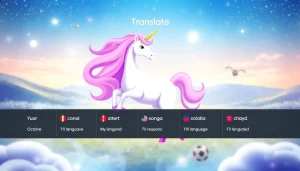Comparative Analysis of Claude Code vs ChatGPT: Coding Performance and Features
Understanding the Basics of Claude Code vs ChatGPT
Introduction to AI Coding Assistants
In recent years, artificial intelligence (AI) has become an indispensable tool for developers seeking to streamline their workflows, enhance productivity, and tackle complex coding challenges. Among the myriad of AI coding assistants available, two of the most prominent are Claude Code and ChatGPT. Both of these platforms harness the power of advanced machine learning algorithms to assist programmers in generating code, debugging, and optimizing applications. However, significant differences exist between them regarding functionality, performance, and user experience.
As developers increasingly turn to AI solutions to augment their skills, evaluating which assistant best suits their needs is paramount. In this comprehensive analysis, we will explore various aspects of the Claude Code vs ChatGPT debate. This will help you make an informed decision on choosing the right tool for your coding projects and will shed light on the current landscape of AI-enabled coding assistance.
Core Functionality of Claude Code
Claude Code is designed with a focus on specific coding tasks, providing robust features that enhance the coding experience. Its core functionality includes automatic code generation, error detection, and code optimization tailored for various programming languages.
1. Code Generation: Claude boasts the ability to generate not just snippets but entire code structures based on user prompts. The assistant can understand context and framework requirements, resulting in accurate outputs closely aligned with best coding practices.
2. Error Detection: An essential feature of Claude is its built-in error detection capability. By analyzing code in real-time, it identifies potential bugs and suggests corrections, making it invaluable during the development phase.
3. Optimization Suggestions: Beyond just generating code, Claude provides insights for code optimization, encouraging developers to write cleaner and more efficient code. This can greatly enhance application performance and maintainability.
4. Multi-language Support: Claude Code is not limited to a specific programming language. It accommodates a variety of languages, including but not limited to Python, Java, JavaScript, and C#. This versatility makes it appealing to a broader audience of developers.
Core Functionality of ChatGPT
On the other hand, ChatGPT takes a more conversational approach to assist developers. Its functionalities extend beyond coding tasks, creating a unique experience for users who seek dynamic interaction. Here’s a breakdown of what ChatGPT offers:
1. Conversational Interface: The primary defining characteristic of ChatGPT is its conversational style. Developers can engage in a dialogue where they can ask questions, request clarifications, or seek coding guidance in real-time.
2. Versatile Use Cases: While ChatGPT is capable of code generation, it is also adept at handling various tasks, such as providing documentation, suggesting design patterns, or even assisting with documentation writing. This makes it a valuable resource for developers engaging in multiple facets of software development.
3. Learning and Adaptation: ChatGPT is designed to learn from user interactions, enabling it to better understand individual preferences and adapt its responses over time. This capability fosters a customized experience for developers, improving overall user satisfaction.
4. Integration with Other Tools: ChatGPT’s integration capabilities allow it to work seamlessly with other applications and development environments, enhancing its effectiveness as part of a larger toolkit.
Comparative Performance Analysis: Claude Code vs ChatGPT
In the realm of AI coding assistants, performance is paramount. To better understand how Claude Code and ChatGPT stack up against each other, we will compare them across several key metrics: speed, efficiency, code quality, and user experience.
Speed and Efficiency Metrics
When it comes to speed, Claude Code generally exhibits superior performance, particularly in code generation tasks. Due to its specialized architecture, Claude can produce extensive code sections far more rapidly than ChatGPT. This is particularly advantageous in time-sensitive projects, where speed is crucial.
Conversely, while ChatGPT may take longer to generate code, this delay is often a trade-off for its more human-like interaction. However, for tasks that require quick replies or heavy lifting in code generation, Claude’s tailored approach often leads to quicker turnaround times.
Code Quality Comparison
The quality of the generated code is a crucial aspect of any coding assistant. Claude Code excels in producing high-quality code suitable for deployment, thanks to its focus on context and best practices. Users have reported that it adheres closely to language-specific conventions, which can save developers significant time during code reviews and testing.
ChatGPT, while capable of generating viable code snippets, may sometimes prioritize conversational flow over strict adherence to coding standards. This can lead to variations in code quality, requiring developers to validate and, occasionally, rewrite portions of the output.
User Experience and Satisfaction
User experience is subjective but remains a vital factor in comparing AI assistants. Claude Code’s intuitive user interface is designed for developers who prefer a straightforward approach to coding tasks. The focused functionalities provide seamless navigation and ease of use, leading to significantly high user satisfaction.
In contrast, ChatGPT’s conversational interface can either be a draw or a detractor. Some users appreciate the back-and-forth dialogue that simulates human interaction, while others may find it somewhat cumbersome when needing direct coding assistance. Evaluating user satisfaction can vary widely depending on personal preferences and work styles.
Specific Use Cases for Claude Code vs ChatGPT
To determine the best application for each AI assistant, we will explore specific use cases where each platform excels. Understanding where each tool shines will enable developers to make informed choices based on their project’s needs.
Best Scenarios for Using Claude Code
1. Rapid Prototyping: If you’re in the early stages of application development and need a quick turnaround for code prototypes, Claude Code’s speed and precision make it an optimal choice.
2. Code Review: For developers looking for a second pair of eyes on their code, Claude’s error detection and optimization suggestions offer substantial benefits during the review process.
3. Large-scale Projects: Given its efficiency and depth of functionality, Claude Code is extremely effective for large-scale projects where complex systems need to be built quickly and accurately.
Best Scenarios for Using ChatGPT
1. Learning and Exploration: Ideal for new developers or those exploring unfamiliar programming languages, ChatGPT’s conversational style allows for deeper engagement in understanding code concepts.
2. Documentation and Communication: For projects that require extensive documentation or communication around coding best practices, ChatGPT’s ability to interact in a more flexible manner provides significant advantages.
3. Multi-disciplinary Projects: If you’re working on projects that blend different skill sets, ChatGPT can assist not only in coding but also in design discussions, requirements gathering, and even stakeholder communication.
Case Studies and User Experiences
To illustrate the practical differences between Claude Code and ChatGPT, we can refer to anecdotal case studies and user experiences.
– Case Study 1: A software development firm utilized Claude Code for a high-stakes project that demanded rapid deployment. Developers benefited from Claude’s ability to streamline code generation, leading to a delivery ahead of schedule.
– Case Study 2: A solo developer turned to ChatGPT for assistance in documenting a complex API. The conversational nature of ChatGPT allowed them to refine their documentation iteratively, resulting in clearer and more accessible content.
These experiences emphasize how the choice between Claude Code and ChatGPT can be influenced profoundly by the nature of the project and specific user requirements.
Strengths and Weaknesses of Claude Code vs ChatGPT
In comparing Claude Code with ChatGPT, it is essential to understand the strengths and weaknesses of each platform. This will illuminate their respective niches within the AI coding assistant landscape.
Strengths of Claude Code in Coding Tasks
– Precision and Context Understanding: Claude leads in generating contextually relevant and precise code.
– Efficient Error Detection: Its built-in error detection is a powerful tool for developers, ensuring that code quality remains high.
– Optimization Capabilities: Claude’s suggestions for code improvement significantly enhance efficiency and maintainability.
Weaknesses of Claude Code Compared to ChatGPT
– Limited Conversational Flexibility: Claude can lack the engaging user experience offered by ChatGPT’s conversational interface.
– Fewer Diverse Functions: While Claude excels in coding tasks, its capabilities may not extend as far into other areas of software development as ChatGPT’s.
Identifying ChatGPT’s Advantages and Challenges
Advantages:
– Conversational Interaction: ChatGPT’s ability to simulate dialogue can enhance learning and brainstorming sessions.
– Versatility Across Use Cases: It can address a variety of tasks beyond coding, including documentation and project management discussions.
Challenges:
– Occasional Code Quality Issues: ChatGPT may generate code that requires significant review and rewriting.
– Slower Performance for Complex Tasks: For tasks requiring rapid outputs, ChatGPT may fall short compared to Claude.
Future Trends in AI Coding: Claude Code vs ChatGPT
The AI coding assistant landscape is continuously evolving, with new advancements being made regularly. Understanding future trends will provide developers with insights into what to expect as these tools develop further.
Expected Developments in AI Technology
As AI technology continues to advance, we can anticipate further improvements in both Claude Code and ChatGPT. This includes developments in natural language processing, code generation techniques, and enhanced contextual understanding that will likely improve the output quality across both platforms.
There’s also a continued emphasis on customization, allowing users to fine-tune how their tools respond and adapt to individual coding styles and preferences.
Impact on the Software Development Industry
As AI coding assistants such as Claude Code and ChatGPT become more integrated into developers’ workflows, their impact on the software development industry will shift fundamentally. These tools can reduce repetitive tasks, allowing developers to focus more on strategic planning and creative problem-solving.
Moreover, the use of AI in coding education is likely to rise, equipping new developers with the skills they need to excel in an AI-aided environment.
Conclusions and Recommendations for Developers
In conclusion, both Claude Code and ChatGPT possess unique strengths that cater to different aspects of software development. Developers seeking precision, speed, and optimized code generation will likely find Claude Code more effective. In contrast, those who appreciate a conversational interface and versatile application will gravitate toward ChatGPT.
Ultimately, the best AI coding assistant for you will depend on your specific needs, project requirements, and personal working style. As AI technology continues to advance, staying informed about the latest developments in tools like Claude Code and ChatGPT will position you to leverage these innovations effectively in your coding endeavors. For more on coding tools, the Claude Code vs ChatGPT debate remains pivotal in understanding the future of coding assistance.














Post Comment